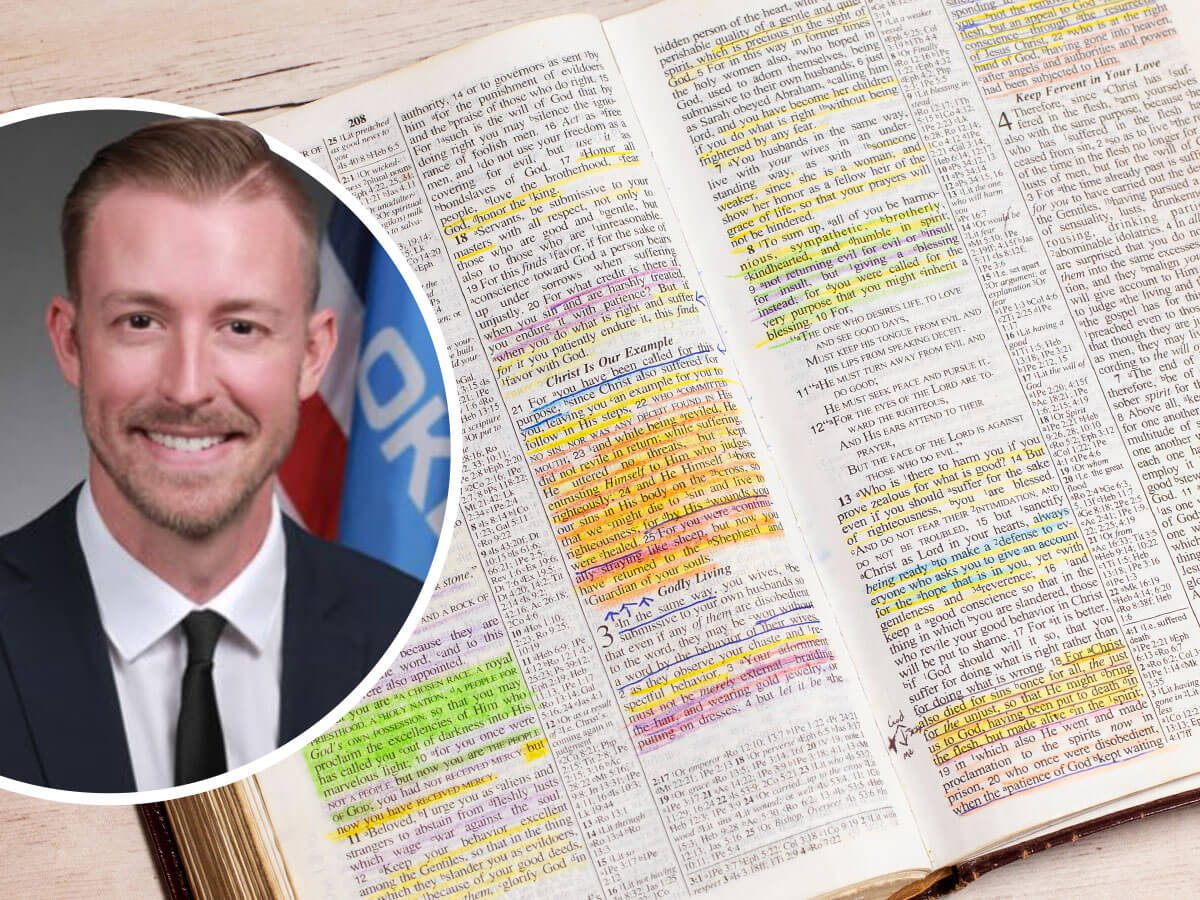Less than a month before the start of the school year, Oklahoma State Superintendent Ryan Walters issued guidance mandating the integration of the Bible into the curriculum for grades five through twelve. This controversial directive has sparked significant debate, with Walters asserting that the Bible is foundational for education and a cornerstone of Western civilization.

Superintendent’s Directive and Implementation
In late June, Republican State Superintendent Ryan Walters ordered school districts across Oklahoma to incorporate the Bible “as an instructional support” into their curriculum. His memo emphasized the immediate and complete implementation of this mandate for the 2024-2025 school year, requiring every classroom to have physical copies of the Bible, the United States Constitution, the Declaration of Independence, and the Ten Commandments. Walters argued that these documents are essential for the holistic education of students in Oklahoma.
The guidelines detail how teachers should incorporate the Bible into their lesson plans, emphasizing its historical, literary, and secular benefits. The five-page document includes strategies for teaching the Bible’s impact on Western civilization, U.S. history, art, and music. It also provides grade-specific guidelines for students in grades five through twelve, ensuring compliance with legal standards and precedents.
Districts’ Responses and Legal Challenges
Despite the directive, at least eight large school districts, including Piedmont, Jenks, Norman, Moore, Stillwater, Bixby, Yukon, and Deer Creek, have stated they will not alter their curriculum. These districts cite local control over educational content as the basis for their decision. The Oklahoma Attorney General’s Office has clarified that while state law allows the Bible to be taught in classrooms, it is ultimately up to each district to decide.
The Center for Education Law issued a memorandum calling Walters’ mandate invalid under state law. This follows a legal precedent set earlier in the year when the Oklahoma Supreme Court ruled that decisions about school library content are to be made by local school boards, not the state board. Oklahoma House Democrats have also urged more school districts to resist the directive, arguing that it infringes on religious freedom and disregards the legislative process.
Content and Guidelines of the Bible Curriculum
Walters’ guidance document outlines how the Bible should be used in classrooms, focusing on its historical and literary significance rather than religious doctrine. The document includes sections on “Textual Analysis,” “Comparative Studies,” “Historical Documents and Speeches,” and “Critical Thinking and Discussion.” Teachers are instructed to ensure that all instruction is conducted neutrally and objectively, acknowledging the Bible’s influence while respecting the diversity of religious beliefs among students.

The guidelines stress the importance of maintaining open communication with parents about the curriculum’s purpose and content. They also highlight the necessity of using the Bible for its educational value, not for religious proselytizing or indoctrination. However, neither the directive nor the guidance specifies who will fund the Bibles required for each classroom or which version of the Bible is to be used.
Walters has cited broad authority under Title 70 of the Oklahoma Statutes, which governs state education, to issue his directive. However, legal experts argue that Walters did not follow the state’s Administrative Procedures Act (APA) in issuing his mandate. The APA requires administrative rules to be authorized by law and passed by the agency’s governing board.
